 The February 17, 2018 Saturday Seminar at Therapro was an innovative presentation from nutritionist, Maria Napoleone, MS, RD, LDN and Occupational Therapist, Danielle Goldstein, M.Ed, OTR/L, entitled: Farm to Table: A Comprehensive Group Model of Nutrition and Feeding. The women have developed a feeding group collaboratively at BAMSI Early Intervention Program, in Brockton, MA. Maria has notable pediatric experience as a nutritionist working in varied settings including the Boston Medical Center Growth and Nutrition Clinic, Pediatric Feeding Clinic and Pediatric Surgery Department at UMass Medical Center, WIC, early intervention, and as a Peace Corps volunteer. Danielle’s broad pediatric experience includes practice in acute care, outpatient services, feeding team, school-based therapy, early intervention, and private practice.
The February 17, 2018 Saturday Seminar at Therapro was an innovative presentation from nutritionist, Maria Napoleone, MS, RD, LDN and Occupational Therapist, Danielle Goldstein, M.Ed, OTR/L, entitled: Farm to Table: A Comprehensive Group Model of Nutrition and Feeding. The women have developed a feeding group collaboratively at BAMSI Early Intervention Program, in Brockton, MA. Maria has notable pediatric experience as a nutritionist working in varied settings including the Boston Medical Center Growth and Nutrition Clinic, Pediatric Feeding Clinic and Pediatric Surgery Department at UMass Medical Center, WIC, early intervention, and as a Peace Corps volunteer. Danielle’s broad pediatric experience includes practice in acute care, outpatient services, feeding team, school-based therapy, early intervention, and private practice.
Danielle and Maria described Farm to Table as a comprehensive model to improve feeding outcomes with nutrition at its foundation. Their toddler feeding group at BAMSI involves using a multi-sensory approach in a structured group setting in which peer role models play a critical role in the development of eating skills. The seminar covered many topics including tips on how to structure a feeding group in various settings, how to implement key strategies, how to empower parents carryover and use the strategies learned through the group, how to improve the quality of foods consumed, how to improve mealtime behavior, and much more!
Farm to Table developed over a number of years as the model for the BAMSI feeding group that provided the toddlers with hands-on food exploration and multisensory experiences in a nurturing, supportive setting. The Sequential Oral Sensory (S.O.S) Approach, a trans-disciplinary program for assessing and treating children with feeding challenges and weight/growth problems, serves as the approach the BAMSI team uses in their feeding group. S.O.S. integrates posture, sensory, motor, behavioral/learning, medical, and nutritional factors to evaluate and manage children with feeding and growth difficulties. Creating a garden as part of the group experience gives the children other sensory and food-related experiences that helps them understand how food grows and what it looks like when it is cooked and on your plate. The garden has produced a wide variety of vegetables and herbs that the group has used to prepare snacks and meals including spaghetti sauce, zucchini muffins, and pesto. Growing food adds a critical component to the group in light of the fact that Maria noted that “70-90% of children who receive EI services have one or more nutritional risk indicators.”
Several of the many helpful resources recommended by Danielle and Maria include: www.choosemyplate.gov, www.feedingmatters.org, www.ellynsatterinstitute.org, and www.farmtopreschool.org.
Maria and Danielle presented an exciting model that addresses jointly the importance of developing a solid nutritional foundation for children as well as the need to support children with feeding challenges through a multi-sensory approach to feeding. They have documented great success with their Farm to Table feeding group. The rich experiences the children gain take them from learning about how plants are grown, cared for, and harvested, to how the plants are prepared, cooked, and eaten, in a structured group with peers and adult role models. This team approach takes children who experience feeding challenges on a nurturing, supportive, fun journey toward improved nutrition and enjoyment of food!
Take a look at a few of the many positive comments from attendees about Danielle and Maria’s seminar:
“Very informational on ways to improve feeding with children not just by using food but also through movement, circle time, structured activities. Really like the idea of group and using peer modeling.” – Julia N., Occupational Therapist
“It was interesting and well presented. I will use many of these strategies for my class. (I am in First Grade and work with Special Needs).” – Annmarie M., Teacher
“Great process from beginning to end of creating this group program.” – Micaela C., Physical Therapist
“The emphasis on the process was important in understanding that every student works at their own pace and that any type of food trial – whether it be touch, smell, or taste is success!” – Beth M., Occupational Therapist
Thank you, Maria and Danielle!
Filomena Connor, MS, OTR/L
February 17, 2018

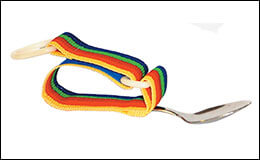
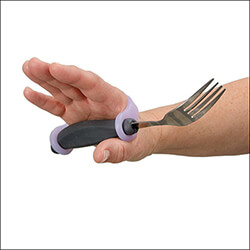
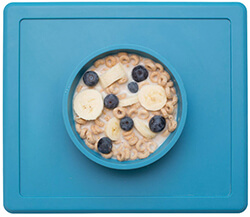
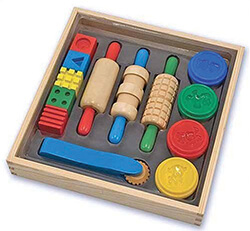
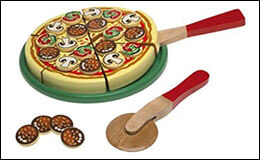
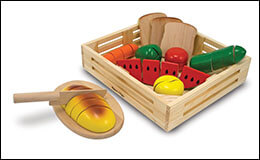
 Cathy Collyer, OTR, LMT has treated children with neurological, orthopedic and sensory processing disorders for over 20 years. She is the author of The Practical Guide To Toilet Training Your Child With Low Muscle Tone.
Cathy Collyer, OTR, LMT has treated children with neurological, orthopedic and sensory processing disorders for over 20 years. She is the author of The Practical Guide To Toilet Training Your Child With Low Muscle Tone. Kerry Pearl, MS, CCC-SLP, Therapro’s Saturday Seminar speaker on February 11th drew attendees representing a variety of backgrounds who work with children having feeding problems. She spoke about
Kerry Pearl, MS, CCC-SLP, Therapro’s Saturday Seminar speaker on February 11th drew attendees representing a variety of backgrounds who work with children having feeding problems. She spoke about